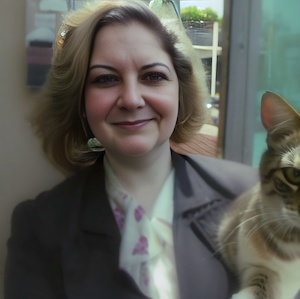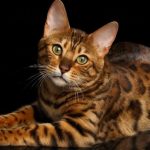As loving cat owners, we always try to give our fur babies the best food possible to keep them healthy and happy. We often check the ingredients on the cat food labels, but have you ever come across “guar gum” in the ingredients list?
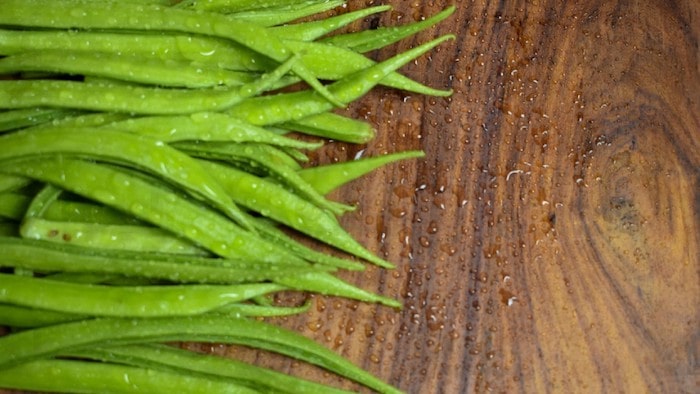
Guar gum is an additive used in cat food to make it smoother and tastier. But, just like anything we eat, there are some risks and benefits to giving it to our cats.
In this article, we’ll take a closer look at what guar gum is, how it helps in cat food, and what to be aware of when feeding our cats with guar gum. So, let’s dive in and learn more about this common cat food ingredient!
Contents
What Is Guar Gum?
Guar gum is a natural food additive that has many uses in processed foods, including cat food. Derived from the seeds of the guar plant, it is a type of soluble fiber that serves as a thickener, stabilizer and emulsifier.
In pet food such as cat food, guar gum helps to create an appealing smooth texture by preventing separation and spoilage. This also extends shelf life for canned goods so cats can enjoy their meals over time without worry about spoilage or wastefulness.
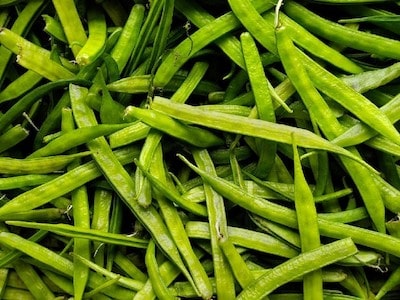
In addition to its texture benefits and shelf-life extension capabilities , guar gum promotes healthy digestion in cats due its source of soluble fiber content which can help reduce constipation risk while assisting with bowel regularity.
This ingredient may also be beneficial for diabetic cats since it slows down glucose absorption rates within the body.
Benefits of Guar Gum in Cat Food
Guar gum is a beneficial ingredient in cat food that offers several advantages to both cats and pet food manufacturers. According to animalpath“the guar gum in cat food can slow down the movement of the gastrointestinal tract of some cats.” Here are some of the benefits of guar gum in cat food:
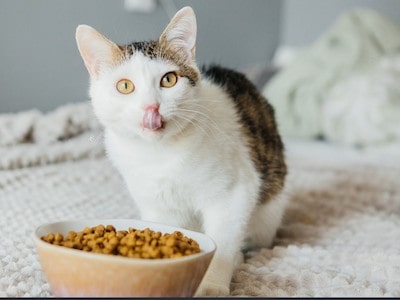
- Improves Texture and Palatability: By adding guar gum to cat food, it becomes more appealing and palatable for cats, promoting them to eat more due to its smooth and consistent texture.
- Extends Shelf Life: The shelf life of canned cat food can be extended by using guar gum, which helps to prevent separation and spoilage. This is particularly important since this type of food can easily go bad if not properly preserved.
- Promotes Healthy Digestion: Cats with diabetes may benefit from guar gum, which is a source of soluble fiber that can slow down the absorption of glucose in the body. Additionally, consuming soluble fiber can improve bowel regularity and reduce the risk of constipation.
- Provides a Low-Calorie Alternative: Without sacrificing texture or flavor, guar gum is a low-calorie ingredient that can help to reduce the overall calorie content of cat food.
- Enhances Nutrient Absorption: By slowing down the rate at which food is digested, guar gum can help cats more efficiently absorb nutrients, vitamins, and minerals from their food – thus enhancing nutrient absorption.
Overall, guar gum is a beneficial ingredient in cat food that offers a variety of advantages. It helps to improve the texture and palatability of cat food, extend its shelf life, promote healthy digestion, and provide a low-calorie alternative.
Potential Side Effects of Feeding Cats With Guar Gum
While guar gum is generally considered safe for cats, there are some potential side effects to be aware of when feeding cats with guar gum. Here are some of the possible side effects of guar gum in cat food:
- Intestinal Blockages: It is imperative to be aware of how much guar gum your cat is consuming, as overindulgence can lead to potentially fatal intestinal blockages. Therefore, it is critical that you monitor your pet’s food intake and ensure they are not eating too much of this ingredient.
- Allergic Reactions: Some cats may be allergic to guar gum, which can cause gastrointestinal upset, including vomiting and diarrhea. If you notice any signs of an allergic reaction, you should stop feeding your cat the food containing guar gum and consult with a veterinarian.
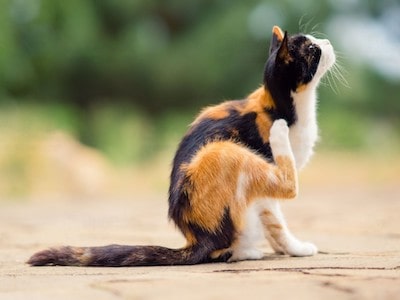
- Decreased Mineral Absorption: Although guar gum can decrease the absorption of certain minerals, such as calcium and zinc, leading to deficiencies in cats if consumed in large quantities, this is unlikely due to a well-balanced diet.
- Obesity: Despite guar gum’s low calorie content, it is still possible for overfeeding to lead to obesity in cats. Therefore, owners must be mindful of the amount their cats consume and ensure they have a balanced diet.
- Gastrointestinal Distress: You should speak with your veterinarian if your cat is showing any symptoms of gastrointestinal distress, such as bloating, gas or diarrhea after eating food that has guar gum in it to check if the food is causing it.
FAQs
Can cats be allergic to guar gum?
Yes, some cats may be allergic to guar gum, which can cause gastrointestinal upset, including vomiting and diarrhea. If you notice any signs of an allergic reaction, you should stop feeding your cat the food containing guar gum and consult with a veterinarian.
Is guar gum safe for cats?
When consumed in moderation as part of a balanced diet, guar gum is usually thought to be safe for cats.According to some studies of Animalpath, the guar gum in cat food can slow down the movement of the gastrointestinal tract of some cats. Nevertheless, too much guar gum can result in intestinal blockages and other health problems. Thus, it is important to keep track of your cat’s nutrition and be aware of the possible side effects.
How much guar gum is safe for cats to consume?
In general, it is important to follow the feeding guidelines on your cat’s food packaging and monitor their food intake in order to ensure a safe amount of guar gum consumption for cats depending on their age, weight, and overall health. Guar gum should be consumed in moderation as part of a balanced diet.
Are there any alternative ingredients to guar gum in cat food?
Yes, xanthan gum, carrageenan, and agar-agar are all viable options. These can provide similar benefits as guar gum but remember to consult with a veterinarian before making any changes to your cat’s diet.
Well, It’s a Wrap
To sum up, guar gum can be a beneficial addition to cat food due to its texture-enhancing and digestive properties. However, it is important to take caution when using this ingredient as too much consumption could lead to unpleasant side effects like allergies, mineral deficiencies, obesity and gastrointestinal distress.
Therefore it is best practice for owners of cats who consume guar gum in their diets to monitor their intake levels carefully and ensure that they are receiving all the necessary nutrients from other sources. If you have any doubts or worries about your cat’s diet or health then you should consult with a vet straight away.
Charlene Pare is the founder of Cat Likes Best. She manages and strategizes the content published on this website. When she isn’t working, she enjoys exploring the city around with her Ameican Shorthair kitty–Moli. Being a technocrat and an avid cat lover, she also writes on pet tech products and some of the featured articles.

